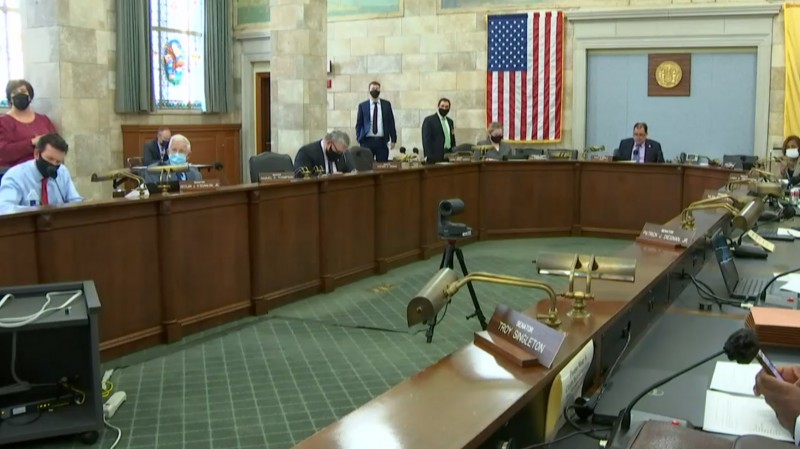A New Jersey bill to amend the casino payment-in-lieu-of-taxes (PILOT) law and provide substantial tax relief to Atlantic City casinos passed the state Senate budget committee Monday without discussion of its fiscal estimate, and without the presence of any casino representative. Four Atlantic City casinos might close if the bill doesn’t succeed.
Bill S4007 mainly removes sports and internet gaming revenues from the definition of gross gaming revenues. It also sets the 2022 basic PILOT payment at $110 million, far less than the $165 million the casinos would have to pay if the current PILOT bill had remained unchanged, according to a fiscal analysis by the Office of Legislative Services.
The only person who spoke on the bill, S4007, was former Atlantic City Mayor and now Assemblyman-elect Donald Guardian, who opposed it. “It will force Atlantic County taxpayers to pay more so the casino industry gets a tax break,” he said, as reported by The Press of Atlantic City.
Eight Democrats voted for the bill, while three Republicans, including state Sen. Michael Testa, R-Cape May, Cumberland, Atlantic, abstained. Republican Sen. Samuel D. Thompson, R-Burlington, Middlesex, Monmouth, Ocean, voted against.
A shared concern for both sides came from state Senate President Steve Sweeney’s warning that four of the city’s nine casinos would likely close without passage of the new PILOT. “We made mistakes (in the original PILOT bill), and if we don’t fix them we run the risk of closing four casinos,” said Sweeney, who sponsored the bill.
Two sources in the New Jersey administration, headed by Gov. Phil Murphy, said recently that two of the city’s smaller casinos faced the possibility of closure and two more would have been under great financial strain without changes to the PILOT, according to The Press of Atlantic City. That would be mainly because as of 2022 the original PILOT would no longer allow casinos to keep a portion of Investment Alternative Tax funds, which are taxes of 1.25% levied on brick and mortar gaming revenues and 2.5% levied on internet gaming revenues.
Testa said he had come into the committee expecting to vote against the bill, but the prospect of four casinos closing and the loss of jobs made him reconsider. Sweeney offered no details regarding the four casinos that are in financial straits, and no one from the casino industry attended the committee hearing, which one lawmaker called “disappointing.”
Joe Lupo, president of the Casino Association of New Jersey, said the CANJ had submitted a position paper on S4007 and had been available virtually to answer questions of the lawmakers. But that availability was apparently unknown to the committee.
“We fully expect to pay our fair share, but we need stability moving forward,” Lupo said, adding that the proposed changes would provide that. Without such a bill, Atlantic City’s casinos could be in “grave danger,” he warned.



